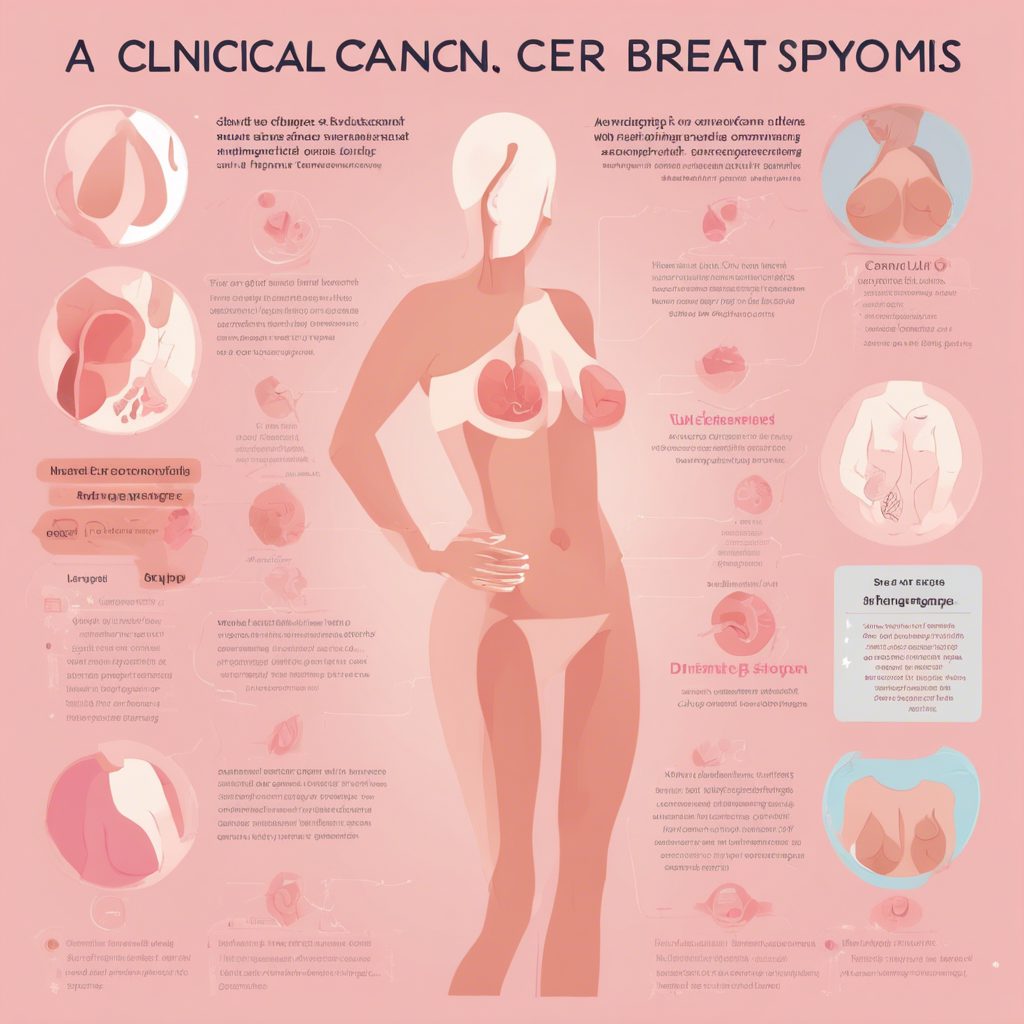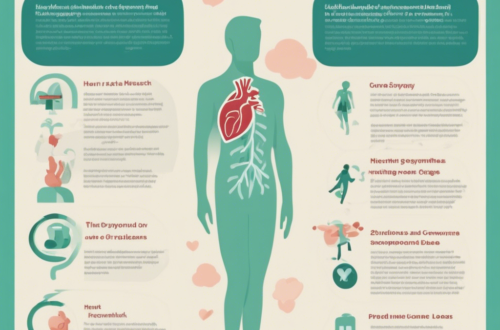Recognizing Nipple Abnormalities
Nipple abnormalities can often be early indicators of breast cancer and should never be ignored. Individuals may notice changes in the shape and size of the nipple, or even observe an inversion, which can be a warning sign.
- Possible changes include:
- Inverted or retracted nipples: This occurs when the nipple pulls inward.
- Nipple discharge: Clear, red, brown, or yellow discharge could indicate serious underlying issues.
If these symptoms arise, seeking medical advice is essential for peace of mind and possibly early intervention.

Skin Changes as Warning Signs
Skin changes on or around the breast can reveal underlying issues and should not be dismissed. It’s crucial to be observant of these signs to catch potential problems early.
- Key skin changes to monitor include:
- Texture changes: Look for thickening or unusual dimpling.
- Redness or irritation: Unexplained redness, swelling, or a rash may signal a need for medical attention.
For instance, a friend noticed that one side of her breast had become dimpled. After a check-up, she was relieved to hear it was benign, affirming the importance of these observations. Always trust your instincts— if something feels off, consult your doctor right away.
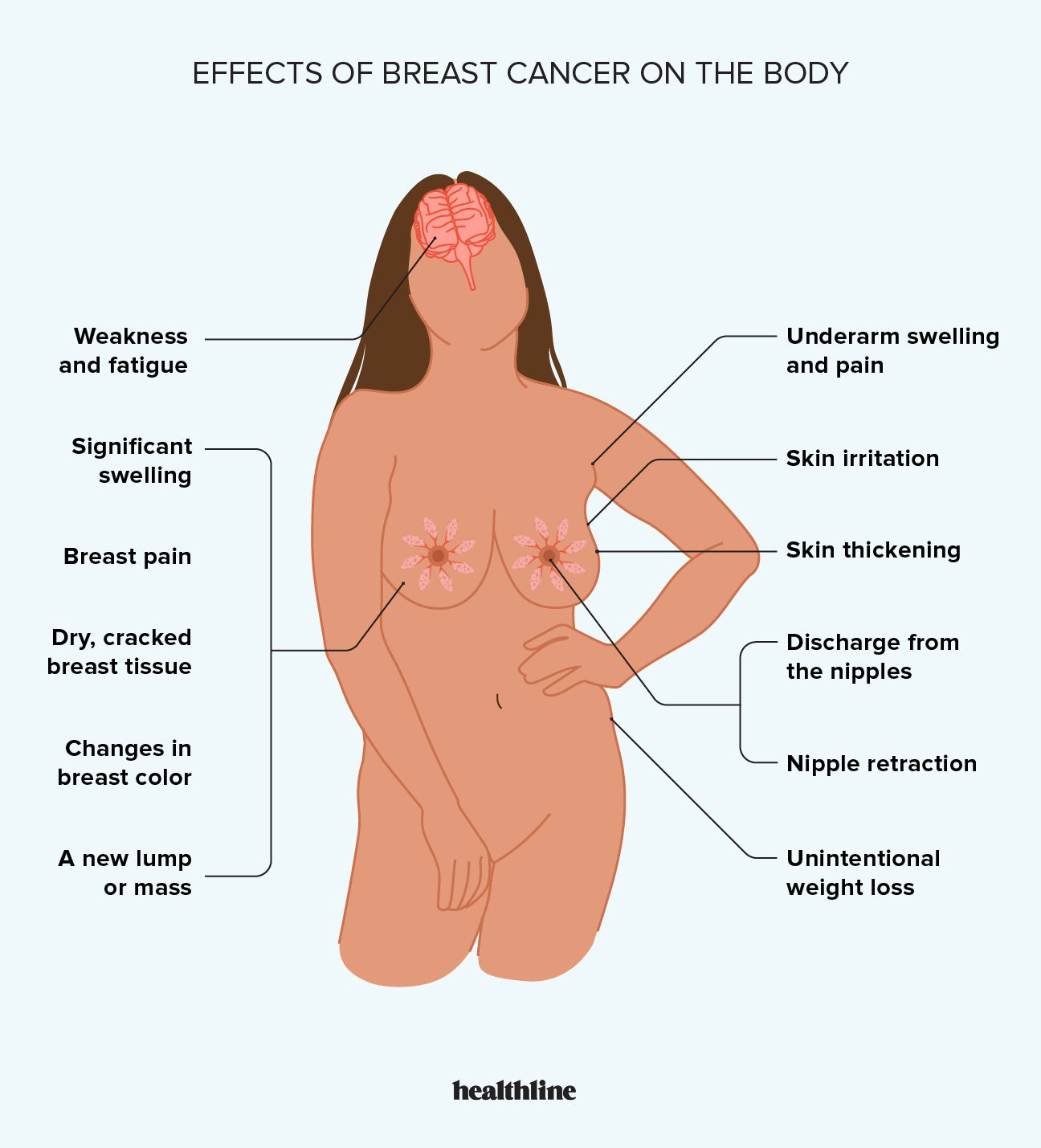
Understanding Breast Cancer Symptoms
The Variation in Symptoms Among Individuals
Breast cancer symptoms can vary widely from one person to another. Some individuals may exhibit obvious signs, while others may not show any symptoms at all.
- Common variations include:
- Presence of lumps
- Changes in breast shape
- Nipple alterations
It’s fascinating how tailored each experience can be. One woman may feel a lump, while another has no tangible signs, reminding us that vigilance is essential for everyone.
Importance of Early Detection for Effective Treatment
Early detection of breast cancer can drastically improve treatment outcomes. Identifying cancer in its early stages often allows for less invasive treatments and a higher success rate.
- Key benefits of early detection:
- Increased chances of successful treatment
- More options for therapy
- Reduced risk of spread to other organs
Think of early detection as your best form of defense. Regular self-examinations and yearly check-ups can help ensure that any worrying symptoms are addressed promptly.

Physical Signs to Watch Out For
Detecting New Lumps in Breast or Underarm
One of the most crucial signs to be aware of when monitoring breast health is the presence of new lumps. Regular self-examinations can help identify any changes early on.
- Key points to remember:
- Location matters: Lumps can appear in the breast or underarm area.
- Don’t panic: Many lumps can stem from other causes, such as infections or benign conditions.
For instance, a friend discovered a small lump under her arm during a routine check. Fortunately, after a consultation, it turned out to be harmless.
Understanding the Texture and Movement of Lumps
Not all lumps are created equal; their texture and movement can provide valuable clues about their nature.
- Texture to observe:
- Squishy lumps: Often benign, resembling a soft rubber ball.
- Firm and immovable lumps: These should be evaluated by a healthcare professional.
Understanding these differences is essential. Trusting one’s instincts and seeking medical advice when something feels off can significantly impact early detection and treatment outcomes.
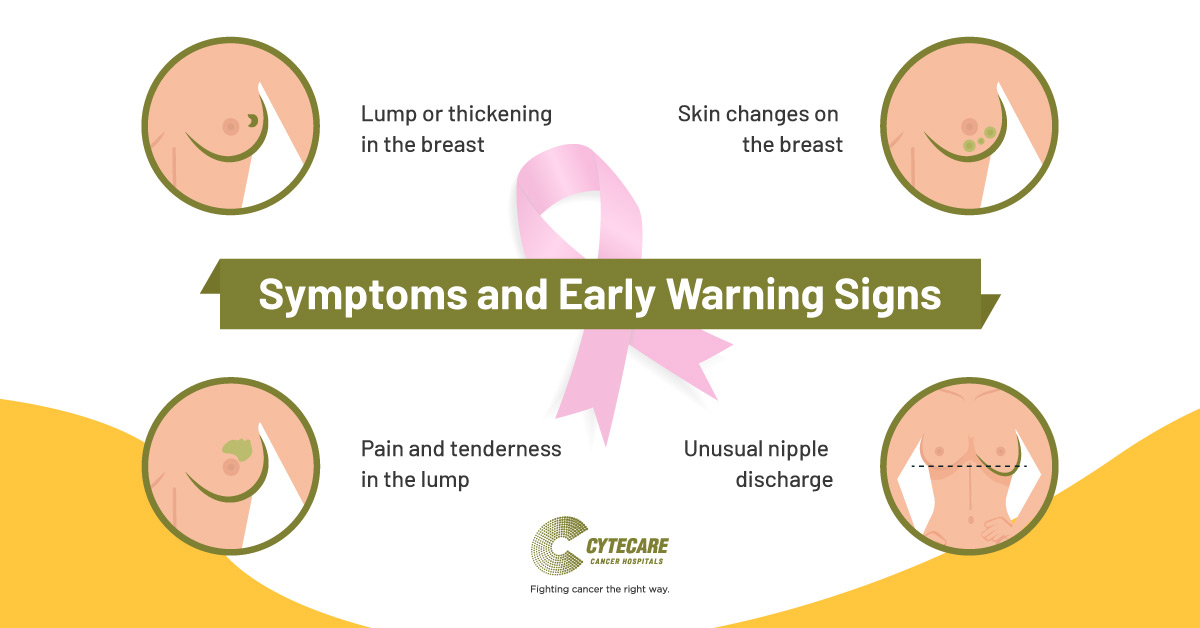
Recognizing Nipple Abnormalities
Changes in Nipple Shape and Size
Changes in the shape or size of the nipple can be alarming and may signify underlying issues. It’s important to be vigilant and recognize potential warning signs.
- Examples of concerning changes include:
- Inverted nipples: Nipple retracting inward instead of standing outward.
- Asymmetry: Noticeable differences in size between the two nipples.
A colleague shared how she noticed one of her nipples had changed shape. Just to be safe, she visited her doctor, illustrating the importance of addressing concerns promptly.
Detecting Nipple Discharge and Its Potential Implications
Nipple discharge can also warrant attention, particularly if it occurs unexpectedly or presents unusual colors.
- Pay attention to:
- Discharge colors: Clear, red, brown, or yellow fluids outside of normal milk secretion could indicate issues.
- Accompanied symptoms: Pain or changes in the area may further heighten concern.
By sharing her own experience, a friend highlighted how she discovered a slight discharge and promptly consulted her physician, leading to early intervention. Recognizing these symptoms could play a vital role in your health journey.

Skin Changes as Warning Signs
Texture Changes Like Thickening and Dimpling
Changes in skin texture can be an important indicator of breast health issues. Noting any thickening or dimpling in the breast can signal something that requires attention.
- What to look for:
- Thickened areas: These may feel harder than the surrounding tissue.
- Dimpling: This could resemble the texture of an orange peel.
One friend shared a story about noticing dimpling in her breast during a shower. She promptly sought medical advice, underscoring the importance of early detection.
Identifying Redness, Irritation, or Rash on the Breast Skin
Unexplained redness, irritation, or rashes on the breast can indicate underlying issues and should not be overlooked.
- Key signs to observe:
- Persistent redness: This might signal inflammation.
- Itching or rash: New rashes that don’t improve can be worrisome.
When another acquaintance experienced unexplained irritation, she consulted her doctor and discovered it was due to a benign condition. Staying aware of these symptoms can greatly enhance one’s chances of timely intervention and better health outcomes.
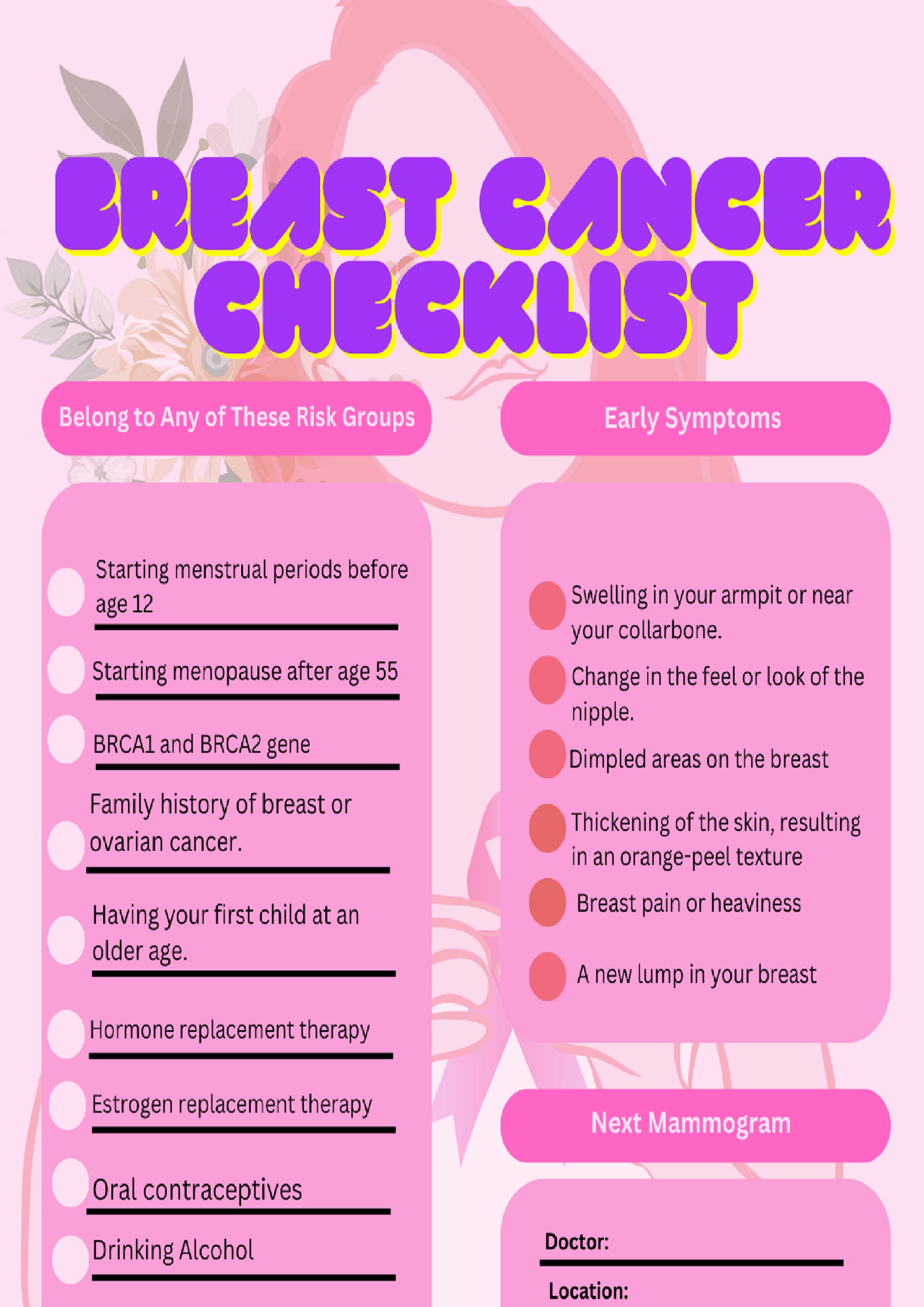
Generalized Symptoms and Additional Warning Signs
Unexplained Weight Loss and Poor Appetite
Unexplained weight loss and a declining appetite can often be red flags that something is amiss in your body, including the possibility of breast cancer.
- Important points to consider:
- Weight loss: If you are losing weight without trying, it warrants investigation.
- Poor appetite: Consistently not feeling hungry can also be concerning.
A friend shared her experience of losing weight rapidly despite eating normally. After expressing her concerns to her doctor, she learned the importance of discussing these symptoms early on.
Visible Veins on the Breast and Their Significance
Noticing visible veins on the breast might seem innocuous at first, but it can sometimes indicate changes in breast tissue.
- What to watch for:
- Increased prominence of veins: Often this can relate to hormonal changes, but if accompanied by other symptoms, it should be evaluated.
For example, a family member noticed their veins became more pronounced during a hormonal shift. It’s essential to track these changes and consult with a healthcare professional if they seem unusual. Awareness of these generalized symptoms can help in making timely health decisions.
